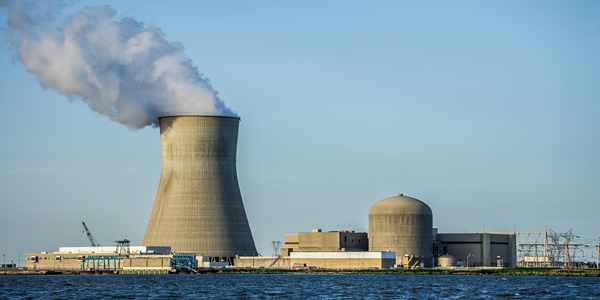By Michael Yoder
New Jersey regulators have taken the first step in determining whether the state should remain in PJM’s capacity market or to go in a different direction to meet the state’s electricity needs.
The New Jersey Board of Public Utilities (NJBPU) voted March 27 to investigate if staying in the capacity market will impede Gov. Phil Murphy’s goals of 100% clean energy sources in the state by 2050 or increase consumer costs (Docket No. EO20030203). (See NJ Unveils Plan for 100% Clean Energy by 2050.)
If not achievable, board members have instructed staff to examine alternatives to the market.
“Taking control of our own resource mix may be the only way to stop the Trump administration’s attempts to prop up fossil fuels to the detriment of our clean energy program,” said NJBPU President Joseph L. Fiordaliso in a press release. “We will do everything in our power to prevent that from happening.”
State officials said the investigation stems from PJM MOPR Rehearing Requests Pour into FERC.)
[FERC on Tuesday extended the deadline for comments on PJM’s compliance filing in the MOPR proceeding to May 15, from April 22, in response to a request by the Public Utilities Commission of Ohio (ER18-1314-003). PUCO had sought a delay until the end of the coronavirus emergency or no earlier than June 1. Commissioner Richard Glick dissented, saying he would have granted PUCO’s request. Opposing the delay were the PJM Power Providers Group and the Electric Power Supply Association, which said in a joint filing: “PJM has not conducted a capacity auction since May of 2018 and the lack of market certainty has harmed both consumers and suppliers.”]
State officials are concerned the MOPR will prevent new offshore wind generation and nuclear units receiving zero-emission credits from clearing the capacity market, forcing state residents to pay twice for capacity. The state has set a goal of procuring 7,500 MW of offshore wind by 2035. (See NJ Sets Schedule for OSW Procurements.)
The board directed its staff to conduct the process through written comments, technical conferences and public hearings.
The written comment period, which is open through April 29, asks for responses to several questions, including the following:
- Can New Jersey utilize the fixed resource requirement (FRR) alternative to adequately satisfy the state’s resource needs?
- Can it utilize the FRR to accelerate achievement of clean energy goals stated in its Energy Master Plan?
- Can other mechanisms, such as a clean energy standard or clean energy market, facilitate the achievement of the state’s clean energy goals?
- What “practical limits” may result from the state’s location along the Atlantic Ocean and the NYISO seam?
- Should the state consider creation of a state power authority?
Cynthia Holland, director of BPU’s Office of Federal and Regional Policy, presented the investigation proposal at the March 27 meeting.
Board member Upendra Chivukula asked Holland if an exact timeline to come up with a resolution has been put in place. “This is an important initiative, so a timeframe will have some kind of inputs that come from the stakeholders,” Chivukula said.
Holland said besides the written comments that are to be filed by April 29, the staff does not yet have a finalized date for issuing its recommendations to the board.




